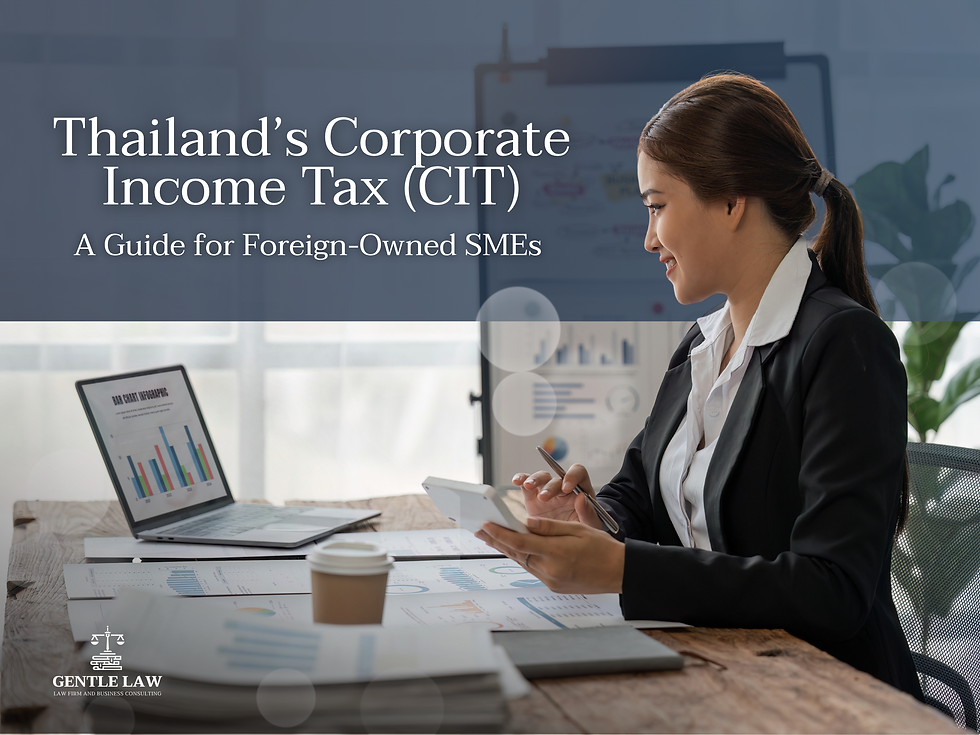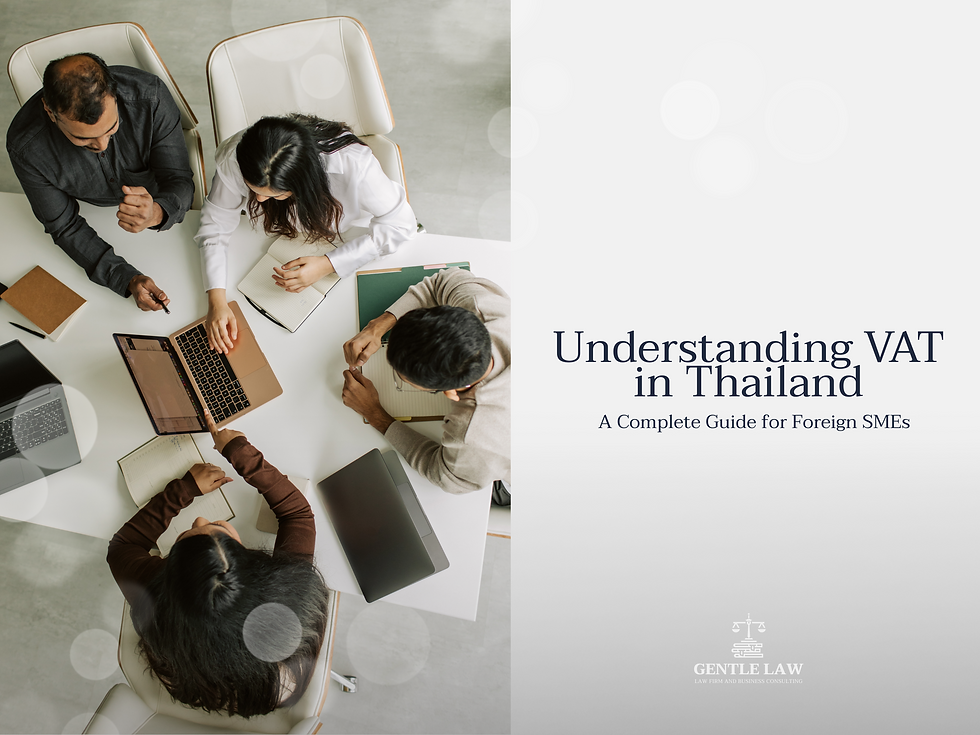Thailand import export regulations: a practical legal guide for foreign-owned SMEs
- gentlelawlawfirm
- Aug 14, 2025
- 3 min read

Why Thailand import export regulations matter for SMEs
Entering or scaling cross-border operations in Thailand requires compliance with customs law, licensing regimes and documentary standards. Non-compliance can trigger shipment holds, fines or revocation of privileges. This guide distills Thailand import export regulations into practical steps with official sources.
Step 1: Trader onboarding to e-Customs
Thailand operates e-Customs for electronic declarations. Before importing or exporting, your company or appointed customs broker must register for e-Customs access and a digital certificate, using the User Registration Application prescribed by Royal Thai Customs. Keep your company affidavit, VAT/TAX ID and address ready.
Step 2: Core documents for import and export
At minimum, prepare the following for each shipment:
Commercial invoice and packing list
Bill of lading or airway bill
Import or export declaration via e-Customs
Certificate of origin when claiming FTA preferences
Licenses or permits for restricted goods issued by the competent authority
Thai Customs maintains the official list of prohibited and restricted items and the responsible agencies. Always verify whether your goods require prior approval.
Step 3: Duties, taxes and customs valuation
Thailand applies ad valorem or specific duties based on the HS classification and customs value. Valuation follows the WTO Agreement methodology as adopted by Thai Customs, primarily using the transaction value with permissible adjustments. On most imports, VAT is collected at clearance in addition to customs duty. The statutory VAT rate is 10 percent under the Revenue Code, but has been reduced to 7 percent by Cabinet resolution for a limited period.
Practical tips
Confirm your HS code and duty rate before shipment.
Model landed cost including duty, VAT and any excise payable.
Retain all documents for post-clearance audit.
Step 4: Prohibited, restricted and controlled goods
Some goods are outright prohibited from import or export, while others are restricted and require a license from the relevant regulator, for example food, drugs, medical devices, radio equipment or chemicals. Thai Customs publishes the consolidated list and points to the agency in charge for each category. Obtain the license before lodging the declaration.
Step 5: Using FTAs to reduce duty
Thailand participates in multiple trade agreements in ASEAN and the wider region, including the Regional Comprehensive Economic Partnership. To claim preferential tariffs, you must meet Rules of Origin and present an appropriate certificate of origin through approved systems.
Subheading with focus keyword: How Thailand import export regulations interact with FTAs
FTA preferences do not waive product-specific licensing or safety rules. Ensure you meet both licensing requirements and Rules of Origin to avoid reassessment at audit.
Typical timelines and release drivers
Clearance time depends on document completeness, correct classification and risk channel in e-Customs. Submitting accurate electronic data and required licenses generally expedites green-lane release.
Common pitfalls for foreign-owned SMEs
Misclassification of HS code leading to underpaid duty and penalties
Missing import licenses for restricted goods
Assuming FTA rates apply without origin documentation
Treating import VAT as operating cash rather than tax payable at clearance
All of the above are frequent triggers for post-clearance assessment.
Compliance checklist
e-Customs registration completed and digital certificate active
HS classification verified and duty/VAT projected
Licenses for restricted items on hand before shipment
Certificates of origin arranged where applicable
Records retained for audit per customs requirements
How GENTLE LAW IBL helps
GENTLE LAW IBL provides one-stop legal and trade compliance support: e-Customs onboarding, HS classification review, licensing with competent authorities, FTA and certificate of origin planning, and post-clearance audit defense. Our goal is compliant speed to market with predictable landed costs.
Call to action: Ready to streamline imports and exports in Thailand? Book a trade compliance consultation at gentlelawibl.com.

![Withholding Tax in Thailand: Practical Guide for Foreign-Owned SMEs [2025]](https://static.wixstatic.com/media/d1cb6c_c745eb1c966e493086313ee1a6909049~mv2.png/v1/fill/w_980,h_735,al_c,q_90,usm_0.66_1.00_0.01,enc_avif,quality_auto/d1cb6c_c745eb1c966e493086313ee1a6909049~mv2.png)

